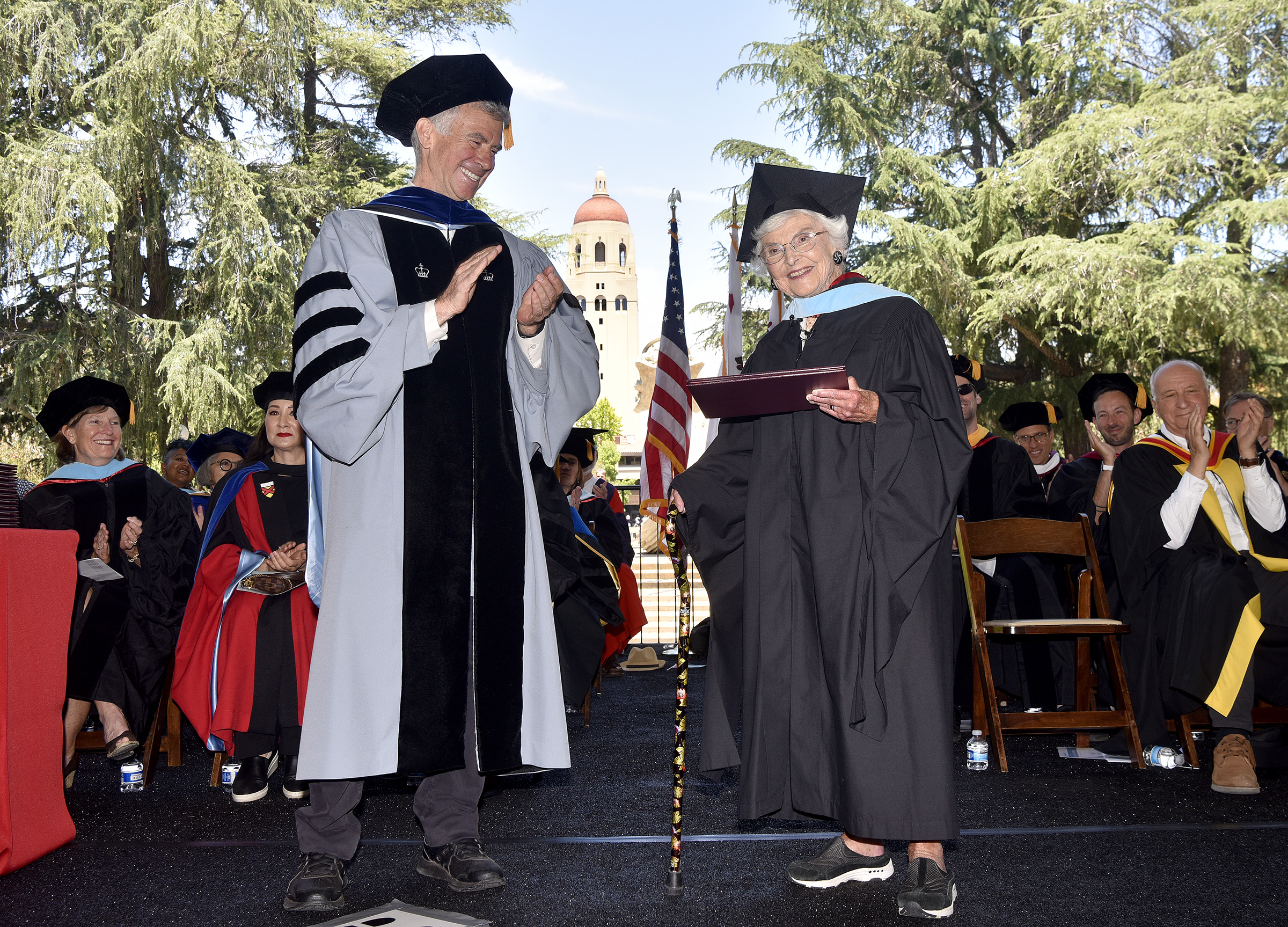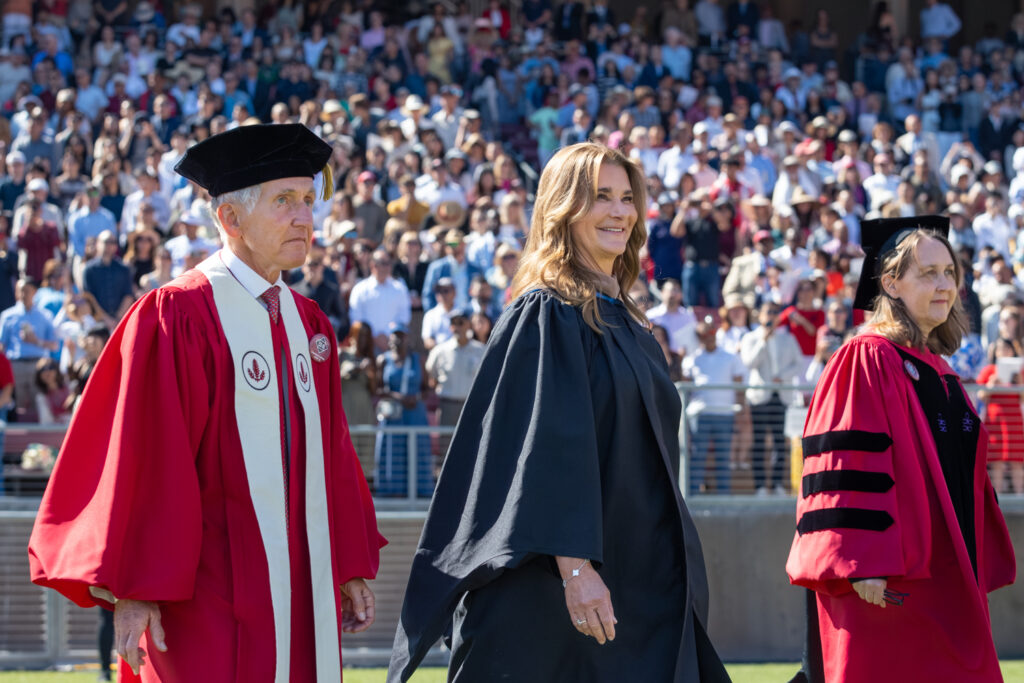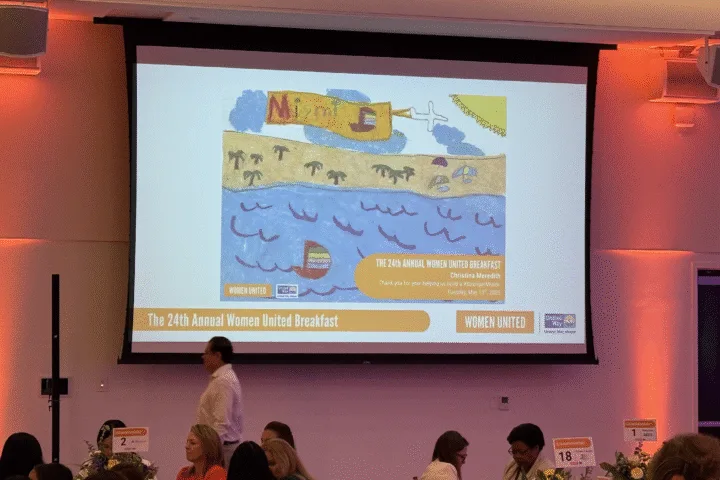Photo: Charles Russo
A couple of days ago, at age 105, Virginia Hislop received her master’s degree in education from Stanford University, 83 years after she began her studies. Hislop’s incredible journey is a timeless truth that pursuing your dreams is never too late. Her story is about perseverance, dedication, and the unyielding pursuit of lifelong learning. And a great reason to talk about why it is never too late.
Hislop began her academic journey in 1936 when she enrolled at Stanford Graduate School of Education. Life’s unpredictable twists—marriage and World War II—paused her formal education, but her passion for learning never dimmed. Over the decades, she committed herself to educational advocacy, serving on school boards and founding institutions like Heritage University. Her lifelong dedication to education is a powerful reminder that our aspirations can be pursued at any stage of life.
Hislop’s story underscores the profound importance of lifelong learning. It demonstrates that education doesn’t stop with a diploma—it’s a continuous journey that can enrich our lives in countless ways. Research by the National Institute on Aging supports this, showing that lifelong learning can improve cognitive function and mental health, helping us stay sharp and engaged as we age.
Empowering Lessons for Lifelong Learning
Virginia Hislop’s journey offers invaluable lessons for women everywhere. Her story encourages us to embrace learning and growth, regardless of age or circumstances. Well, but what to do?
Never Stop Learning: Education and personal growth are continuous processes. Engage in new experiences and seek knowledge at every stage of life. Lifelong learning can lead to improved mental agility and a sense of purpose.
✿ Thank you for reading!
Subscribe to be our bestie, no spam—just good vibes once a month.
Pursue Your Passions: Whether it’s a delayed degree or a new career path, it’s never too late to chase your dreams. Passion fuels perseverance and resilience, which are crucial for overcoming obstacles.
Advocate for Others: Use your knowledge and experiences to make a difference in your community, just as Hislop did throughout her life. Advocacy and mentorship enrich both the mentor and the mentee.
Stay Curious: Cultivate a curious mindset. Ask questions, explore new interests, and never settle for the status quo. Curiosity drives innovation and personal fulfillment.
Build a Support Network: Surround yourself with people who encourage and support your learning journey. Support networks provide emotional strength and practical assistance.
Set Goals: Define what you want to achieve and create a plan to get there. Celebrate small milestones along the way. Goal-setting fosters motivation and a sense of accomplishment.
Embrace Technology: Use online resources and tools to continue your education. The Internet offers countless learning opportunities. E-learning options and new flexible teaching systems make education accessible.
Take Risks: Don’t hesitate to step out of your comfort zone and try something new. Taking risks can lead to unexpected opportunities and growth.
Reflect on Your Progress: Regularly reflect on what you’ve learned and how you’ve grown. Reflection helps consolidate learning and guide future efforts.
Stay Positive: Maintain a positive attitude and believe in your ability to achieve your goals. Positivity enhances resilience and overall well-being.
10 Tips for Lifelong Learning
Stay Active Mentally: Engage in activities that challenge your brain, such as puzzles, reading, and learning new skills. A study published in The Journal of Gerontology found that mental stimulation can delay cognitive decline.
Enroll in Courses: Take advantage of courses offered by local colleges, universities, or online platforms. Continuous education keeps skills relevant and minds engaged.
Join a Group: Participate in study groups, book clubs, or professional organizations. Social learning environments provide support and enhance understanding.
Volunteer: Offer your skills and knowledge to volunteer organizations, which can also be a great learning experience. Volunteering connects you with like-minded individuals and new perspectives.
Travel: Explore new places and cultures to broaden your perspective. Travel fosters adaptability and cultural awareness.
Read Widely: Read books, articles, and journals on various topics. Reading expands knowledge and critical thinking skills.
Practice Self-Care: Take care of your physical health, as it directly impacts your ability to learn and grow. Regular exercise, proper nutrition, and adequate sleep are essential.
Mentor Others: Share your knowledge and experience with others, which can reinforce your own learning. Mentorship is mutually beneficial and fosters a sense of community.
Stay Open-Minded: Be open to new ideas and different viewpoints. Open-mindedness encourages continuous learning and personal growth.
Embrace Challenges: View challenges as opportunities to learn and grow. Overcoming challenges builds confidence and resilience.
10 Things to Avoid in Lifelong Learning
Don’t Procrastinate: Start your learning journey now; don’t put it off. Procrastination delays progress and diminishes motivation.
Avoid Negative Thinking: Don’t let self-doubt or negative thoughts hold you back. Negative thinking can undermine efforts and potential.
Don’t Isolate Yourself: Engage with others and seek support. Isolation can lead to stagnation and missed opportunities for collaboration.
Don’t Stick to Comfort Zones: Push yourself to explore new areas. Staying in your comfort zone limits growth and discovery.
Avoid Overwhelming: Don’t try to learn everything at once; focus on one thing at a time. Overwhelm can lead to burnout and decreased effectiveness.
Don’t Fear Failure: Mistakes are part of the learning process. Fear of failure can prevent taking necessary risks and learning opportunities.
Don’t Ignore Feedback: Be open to constructive criticism and use it to improve. Ignoring feedback misses opportunities for improvement and growth.
Avoid Distractions: Create a conducive environment for learning. Distractions reduce focus and retention.
Don’t Neglect Rest: Ensure you get enough sleep and relaxation to keep your mind fresh. Lack of rest impairs cognitive function and learning ability.
Don’t Give Up: Persistence is key; keep going even when it gets tough. Giving up prematurely prevents reaching your full potential and achieving goals.
Create Boundaries and Don’t Waste Time on Social Media
The last piece of advice: Spending only 90 minutes a day scrolling through social media adds up to over 32,850 minutes, or nearly 23 days a year. Over a lifetime, assuming an average lifespan of 78 years, that equates to approximately 1,794 days, or almost 5 years, spent on social media. Imagine what you could achieve with that time dedicated to learning, growing, and pursuing your passions.
Virginia Hislop’s story is a powerful reminder that age is just a number for achieving our dreams and making an impact. Her unwavering commitment to education and her lifelong learning journey inspire us to embrace our passions and continue growing, no matter where we are.
Let Hislop’s remarkable achievement motivate you to pursue your dreams, and remember, it’s never too late, ladies. Embrace lifelong learning with open arms, and let your journey of growth and discovery begin today.
✱ If you liked this article, please share it with a friend who could use inspiration.
If you have a topic in mind or a story to share anonymously or with your name, email us at [email protected]









